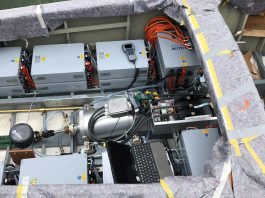An EU funded project is set to revolutionise the battery industry with their new rechargeable, safe, and sustainable magnesium-based batteries.
The European Magnesium Interactive Battery Community (E-MAGIC) project is developing new magnesium-based batteries. The four-year project is funded by the EU’s Future and Emerging Technologies (FET) programme. E-MAGIC’s research offers an alternative to lithium batteries, which pose safety concerns due to their history of setting on fire.
Finding new elements for energy storage
The E-MAGIC project aims to find new elements to improve battery safety and efficiency. Researchers found that the use of magnesium can offer an alternative to traditional battery chemistry. As one of the most electropositive elements, magnesium can easily release electrons and act as an efficient anode for batteries.
Magnesium is the eighth most abundant metallic element on the Earth’s crust. The extraction of magnesium has a low environmental impact whilst recycling magnesium alloys only requires 5% of the energy needed to produce them.
“The first step in the development of materials for battery application is to run computational studies that accelerate the material’s discovery and help to predict its behaviour when combined with other elements inside the battery,” says Dr Luis C Colmenares Rausseo, a scientist of the E-MAGIC project team.
Creating magnesium-based batteries
Researchers from the E-MAGIC project say that their research holds the potential to increase Europe’s competitiveness in battery technologies. “With this project we would like to address the potential to use magnesium inside batteries, but also to strengthen the European community around magnesium-based batteries as emerging energy storage system,” explains Colmenares.
The E-MAGIC project is led by the CIDETEC Energy Storage consortium which brings together European researchers from a wide range of fields, including chemists, physicians, and engineers. This consortium has been assembled to innovate the manufacturing chain, from basic research to process optimisation.









